
1 – 30 August
For 2020, it had been planned to put the Salzburg Festival itself under the microscope, and also the myth it has been creating by constantly retelling, for example, the works of Strauss and Mozart, or the Jedermann/Everyman play.
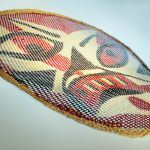
20 July – 31 August
Oedipus, Medea and the heroes of the Trojan War; war, flight, fate, self-finding and loss of self; sacrifice, guilt and atonement are at the core of these works, the ancient myths which the 2019 Festival summer aspired to explore anew: Mozart’s Idomeneo, Cherubini's Médée, Offenbach's Orphée aux enfers …
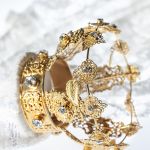
26 July – 30 August
The Lithuanian soprano Asmik Grigorian had already débuted at the Salzburg Festival as Marie (Wozzeck) in 2017 and captivated the public with her authentic interpretation.

21 July – 30 August
‘Festivals must create astonishing artistic constellations’: with this ambition Markus Hinterhäuser began his term as Artistic Director in 2017 and brilliantly kept his promise: with Berg’s Wozzeck in the evocative world of images of the universal artist William Kentridge; with Verdi’s Aida (Anna Netrebko) interpreted by the Iranian photographic and video artist Shirin Neshat and Riccardo Muti; with Reimann’s Lear in Simon Stone’s and Franz Welser-Möst’s extraordinary interpretation; with Shostakovich’s Lady Macbeth of the Mtsensk District in a congenial realization by Mariss Jansons and Andreas Kriegenburg.

22 July – 31 August
2016 saw the world première of The Exterminating Angelby Thomas Adès. The commissioned work is based on Luis Buñuel’s film El ángel exterminador. The guests of a festive party are held captive by a higher power in a villa; slowly but surely all conventions are fragmented.

18 July – 30 August
Harry Kupfer’s illustrious new production of Strauss’s Der Rosenkavalier, conducted by Franz Welser-Möst, had already had its first performance in 2014. The season was dedicated to the memory of the outbreak of the First World War in 1914.
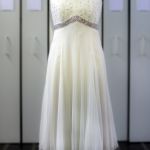
18 July – 31 August
Since 2012, Cecilia Bartoli has been the Artistic Director of the Whitsun Festival and has taken it to an unparalleled success. The mezzo-soprano has chosen iconic roles – Cleopatra in Handel’s Giulio Cesare, Bellini’s Norma, Rossini’s Angelina and Isabella, Gluck’s Iphigénie, Bernstein’s Maria and Handel’s Ariodante and Alcina – to take epic trips through the world of bel canto.
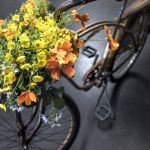
19 July – 1 September
Sven-Eric Bechtolf had planned a wide-ranging straight drama repertoire already in 2012, including Kleist’s Prinz Friedrich von Homburg staged by Andrea Breth, or Irina Brook’s interpretation of Ibsen’s Peer Gynt, and Händl Klaus’s ‘musical play’ Meine Bienen. Eine Schneise/My Bees. A Swath performed by Musicbanda Franui in its world première.

20 July – 2 September
Alexander Pereira’s term as Artistic Director initiated the ‘Ouverture spirituelle’ and a fireworks of permières: Die Zauberflöte/The Magic Flute, with Nikolaus Harnoncourt and the Concentus Musicus; Das Labyrinth (‘Der Zauberflöte zweyter Theil’)/The Labyrinth (‘The Second Part of The Magic Flute’) by Peter von Winter on the 200th anniversary of Schikaneder’s death; Sven-Eric Bechtolf’s Ariadne celebrating the centenary of its first performance; Puccini’s La bohème with Anna Netrebko and Piotr Beczała...
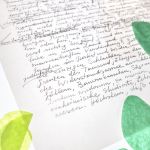
27 July – 30 August
In the season of his interim period as Artistic Director, Markus Hinterhäuser placed striking key accents on the repertoire: the first collaboration between Peter Stein and Riccardo Muti produced a great success for Verdi’s Otello. Christian Thielemann celebrated his acclaimed first performance conducting opera in Salzburg with Strauss’s Die Frau ohne Schatten/The Woman without a Shadow.
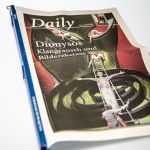
25 July – 30 August
The core theme of the 2010 Festival season was myth and its potential to symbolize elemental human experiences. One of the high spots was the world première of Wolfgang Rihm’s Dionysos; the composer based his libretto on Nietzsche’s Dithyramben.
2010s
Leadership debates overshadowed artistic accomplishments until the mid-2010s. Moreover, the former technical director of the Salzburg Festival was discovered as being involved in a financial scandal connected to the organizationally autonomous Easter Festival. Artistic Director Jürgen Flimm had asked to terminate his contract early at the end of 2008 in order to take over the Berlin Staatsoper Unter den Linden; accordingly, in May 2009, the Supervisory Board appointed the head of Zurich Opera, Alexander Pereira, from autumn 2011 onwards as the new Artistic Director of the Salzburg Festival who engaged Sven-Eric Bechtolf as head of drama.
So as not to endanger the Festival, in 2010 Markus Hinterhäuser was elected to the Board of Directors as interim Artistic Director. Festival President Rabl-Stadler took over the agenda of the departing Commercial Director Gerbert Schwaighofer until 2017; her contract was incrementally extended until 2020. She thus enters Festival history as the most influential President, who has succeeded in confidently leading the Festival through the rough and the smooth.
Also Alexander Pereira’s time as Artistic Director began with a change at the Whitsun Festival. In Cecilia Bartoli, one of the foremost singers of our era took over as Artistic Director in 2012 and led the Festival to new heights.
Even before the first Festival summer under his directorship began, quarrels about the budget flared up between Pereira and the Supervisory Board; Pereira backed growth and brilliant singers and wished to present solely new productions. In the end, he started with a successful new series and created with the ‘Ouverture spirituelle’ a format, which still continues today. The programme became much wider in range, which simultaneously meant a higher level of financing. In 2012, Rolex became the exclusive sponsor of the Whitsun Festival and main sponsor of the Salzburg Festival. In 2014, Audi extended its sponsorship, the next year Nestlé did the same. The Kühne Foundation became main sponsor in 2019. When in June 2013 Pereira announced he was to be the new director of La Scala Milan, his contract was terminated early, Bechtolf was appointed to the Board of Directors and together with Rabl-Stadler entrusted with the planning of the seasons 2015 and 2016. The position of Artistic Director was advertised. Still in 2014, the Supervisory Board engaged Markus Hinterhäuser to be the new Artistic Director starting in autumn 2016. He appointed Bettina Hering as head of drama in Salzburg and Florian Wiegand as head of concerts. The Board of Directors was reinforced in personnel to three again by the appointment of Lukas Crepaz as Commercial Director.
With the first seasons of Markus Hinterhäuser manifesting much artistic success, the Salzburg Festival has positioned itself as an ‘epicentre of the extraordinary’. When COVID-19 started to spread dramatically early in February 2020 and far-reaching restrictions put a stop to social and economic life all over the world, the Salzburg Festival, too, was significantly affected by these measures.
